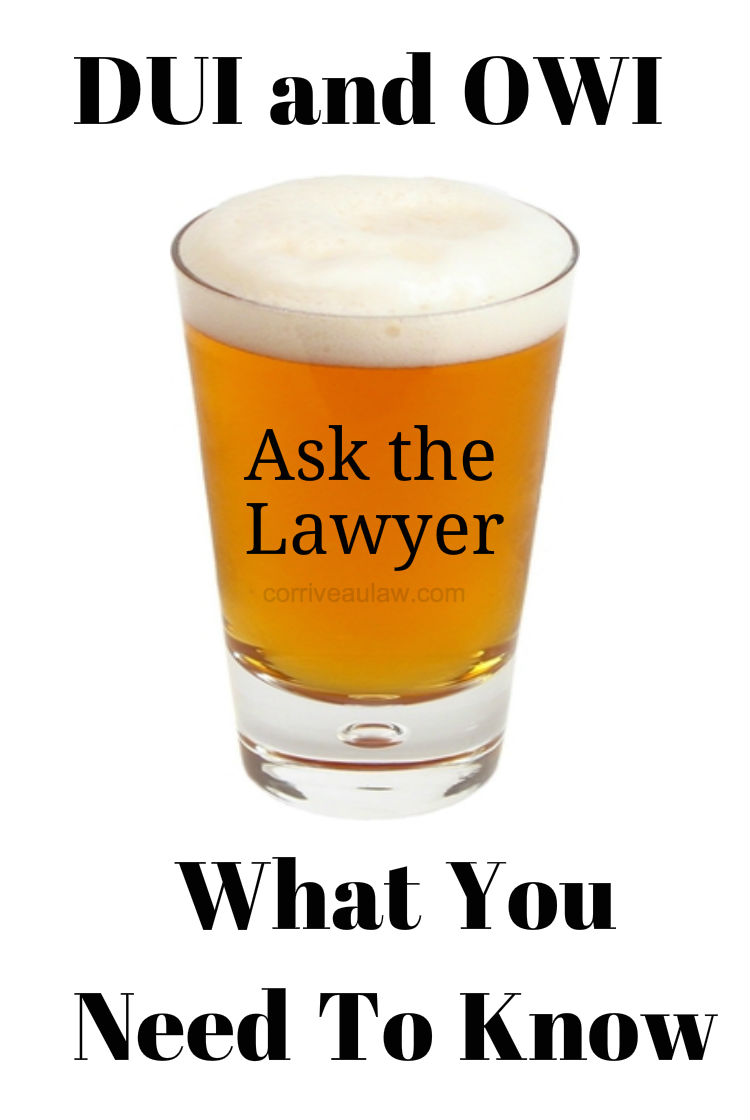Michigan DUI & OWI – What You Need to Know
Michigan law enforcement refers to most drunk driving incidences as OWI (operating while intoxicated) rather than, DUI (driving under the influence). However, for all intense purposes the two are basically synonymous.
How Much Do You Have to Drink (*BAC) For An OWI In Michigan?
(*Blood Alcohol Content)
A question frequently asked by people who want to know ‘just how many’ drinks they may have before they are considered legally drunk. While, there are charts, graphs, and calculators available to help gauge ‘just how much’ these are simply reference tools and should not be the determining factor in deciding if you are ‘sober enough‘ to operate a vehicle. The answer is ‘ANY’ alcohol consumption can put you at risk.
Michigan has strict drunk driving laws in place and when you drink and drive under the influence ‘any amount of alcohol’ means putting your freedom at risk and risking the safety of others.
What If You Refuse To Take A Breath / Chemical Test?
Michigan has what is known as the implied consent law – meaning in the event that one should refuse to submit to such testing he/she could automatically be subject to a fine and/ or license suspension.
Over all, if you have no prior DUI convictions within the last seven years, you should almost always take the breath test.
Is a DUI a Felony or a Misdemeanor in Michigan?
Well, it actually depends on the circumstances surrounding the offense. A first or second DUI conviction is frequently considered a misdemeanor that is unless it involves an accident causing death or serious bodily harm. In which case a first or second conviction may then be classified as a felony in Michigan. Having gotten a third DUI in seven or less years is legally considered a felony.
However, a person going to court for a DUI whether it is a first or third offense is still going to be viewed by the Judge {and most others} as having a problematic relationship with alcohol therefore posing and increased risk to other law abiding civilians.
How do I get my driver license back after an OWI / DUI?
While there are a number of OWI/ DUI charges in Michigan almost all of the charges will result in some sort of loss of license privileges. If your BAC is less than .17% and this is a first offense one can expect up to 180 day license suspension including but, not limited to additional penalties. If your BAC is .17% or higher you are then potentially facing up to 1 year license suspension.
All things taken into account; the number of offenses and the timing of each – one could be facing as much as five years or a permanent loss of ones driving privileges should this be a second/ third offense in seven years.
Before you are even legally eligible to file a license restoration appeal the mandatory revocation period must have passed. {That is 1 year of 2 OWI’s with in 7 years and 5 years for 3 OWI’s within 10 years.} The Secretary of State wants to make sure anyone who has had his or her driving privileges revoked is a safe bet to never drink again. Simply put, people who don’t drink are not at risk of drunk driving – sobriety matters.
Michigan does not expressly prohibit plea option deals and the use of a professional legal representation such as those services offered by Corriveau Law. The use of a qualified and experienced attorney can certainly aid in the potential reduction of such OWI/DUI charges placed against you. For more information and a free consultation contact Corriveau Law today!
In Michigan OWI is MCL 257.6251 (1). Simply look at your ticket and call tel:1-844-257-6251 to be directly connected to Corriveau Law for immediate assistance.
Disclosure: All cases are driven by the facts unique to each case as they apply to the law at the time, and the persuasive argument of an attorney. The information we provide is meant only as a broad overview, and not to be relied on without speaking with a legal representative





